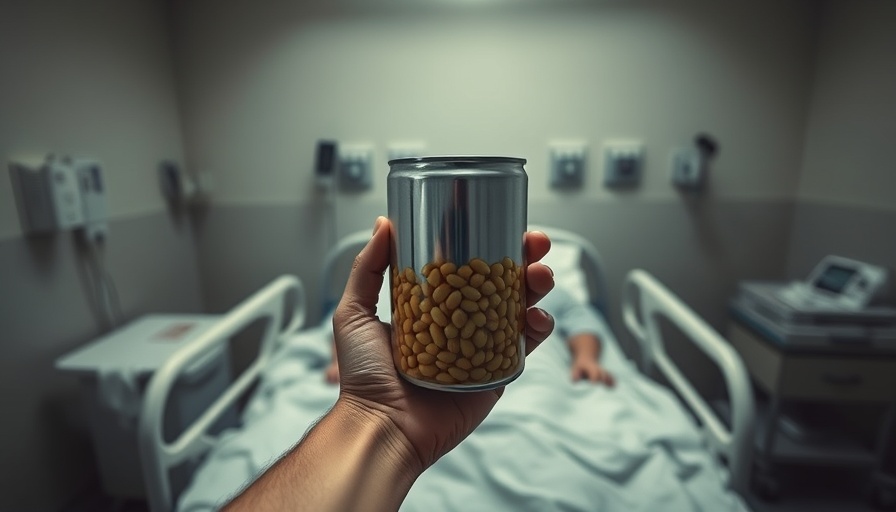
The Human Toll of Gaza's Medical Crisis Amid Blockade
The anguish expressed by parents watching their children fight for survival in hospital beds reflects the grim reality in Gaza under the continuing blockade. As hospitals like Nasser struggle to provide even basic nourishment to their patients, the plight of individuals recovering from horrific injuries paints a stark picture of the humanitarian crisis unfolding. With food supplies scarce, hospitals have increasingly become reliant on families to bring meals—often consisting of minimal provisions like beans or canned foods. As parents like Asmaa Fayez scour markets for vegetables to prepare for their hospitalized children, the level of desperation is palpable.
The Rising Crisis: Nutitional Deficiencies in Gaza
The situation has escalated sharply, with reports indicating that malnutrition rates among children and adults are alarmingly high. Dr. Khaled Alserr, a surgeon at Nasser Hospital, states that almost all patients have experienced weight loss during their stay. The hospital staff are struggling with depletion of nutritional supplements, critical for those in intensive care. Beyond the walls of the hospital, approximately 16,000 pregnant women are part of a dire statistic as they face acute malnutrition, impacting not just their health, but that of the unborn.
The Community's Contribution: Family Support in Crisis
Families are stepping in where the hospitals cannot. As patients rely on home-cooked meals, hospital beds have transformed into makeshift dining areas. Sobhi al-Bursh, an injured boy who lost his foot, is fed from a small stove set up at his bedside by his father. Stories like these of human resilience and bonding offer glimpses of hope against a bleak backdrop. Yet, the need for proper healthcare nutrition underscores a systemic issue exacerbated by the blockade, where families must bear the burden of ensuring their loved ones receive adequate nourishment.
Sustaining Lives: Why Food Assistance is Vital
The United Nations and various aid organizations have labeled the ongoing restrictions as untenable. With the blockade now entering its third month without any significant changes, the need for international engagement in addressing these humanitarian needs cannot be overstated. Thousands are already falling prey to malnutrition, painting a dire picture that threatens the fabric of community life in Gaza. For every child like Mahmoud Al-Beyram, who lies in a hospital bed recovering from a head injury, the lack of reliable food is an uphill battle against not just individual suffering but a community in peril.
A Call for Political Action: Seeking Solutions
As the world watches, the situation in Gaza continues to become increasingly dire. The importance of health services, which extend beyond mere medical treatment to include nutritional support, is crucial. Policymakers must reconsider the restrictions that deny basic supplies to civilians. Understanding the intimate connection between health, nutrition, and recovery could motivate global leaders to make informed decisions towards easing the blockade, with an aim of restoring dignity and hope for families caught in this crisis.
What Can You Do? Stand for Human Rights
While it can be easy to feel distant from the events going on halfway across the world, advocating for humanitarian aid and raising awareness within our own communities can bring about a positive change. Engage with local organizations, encourage discussions about these pressing humanitarian issues, and stand firm in the belief that everyone deserves access to food and healthcare—regardless of geographical boundaries.
Communication is vital in today’s society. Keeping updated with the latest breaking news and supporting community stories can cultivate a world that does not turn a blind eye to critical issues facing humanity.
 Add Row
Add Row  Add
Add 






Write A Comment